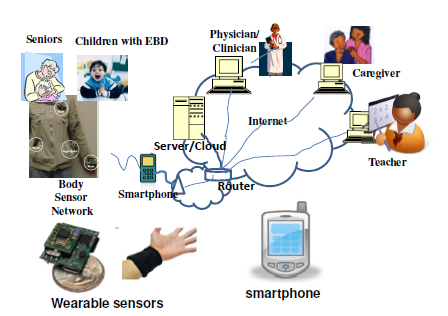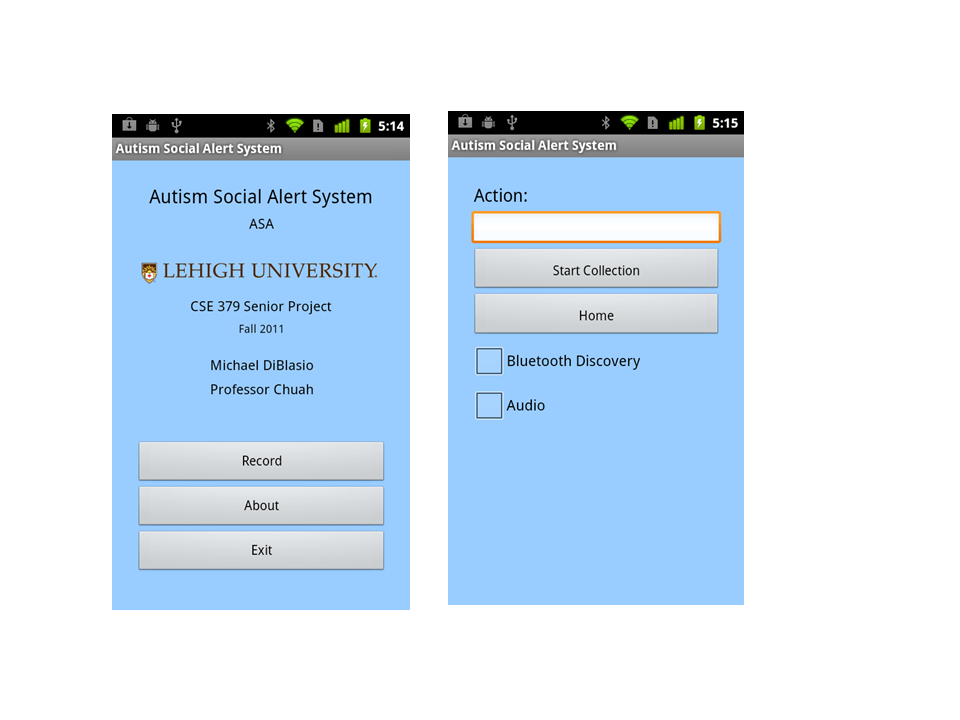Sensors embedded within smartphones and wearable sensors provide users with the ability to colletively sense the world. This leads to a growing trend of mobile healthcare systems utilizing such sensors. However, such healthcare systems are vulnerable to user spoofing, in which an adversary may use others' collected sensor data to gain benefitis. We have designed a gait-based user verification scheme for smartphone enabled mobile healthcare systems. Our scheme exploits the readily available accelerometers embedded within smartphones for user verification. Specifically, our scheme extract gait patterns from run-time accelerometer measurements to perform robust user verification. Our scheme is designed such that it is robust to users' various walking speeds. Our framework can be implemented in two ways: user centric and service centric. Our results can be found in these two published papers: IEEE SECON 2013 paper and TMC paper .
Mobile devices such as smartphones and tablets play important roles in our daily lives. Users often like to use their smartphone to complete online transactions including payment of any healthcare services they receive. Few studies provide efficient real time user signature verification. In our work, we propose a critical segment based online signature verification system to secure mobile transactions on multi-touch mobile devices. Our system identifies and exploits the segments which remain invariant within a user's signature to capture the intrinsic signing behavior embedded in a user's signature. Experimental evaluation of 25 subjects over 6 months time period shows that our system is highly accurate in providing signature verification and robust to signature forging attacks. Our results can be found in this IEEE CNS 2015 paper .
We have recently developed efficient deep learning based mobile object recognition scheme which allows a group of users to collaborate in improving the object recognition rate in different visual domains. Our related DeepCham paper has been published at First IEEE/ACM Symposium on Edge Computing.
We have recently developed several Android-based applications targetting autistic children/teenagers. Interested readers can find more information in this link .
Two undergraduates have also developed a customizable Kinect-based game via a senior design project. This project won the peer choice award. This game is very popular among autistic children attending Autism Respite events at a nearby church. The poster for this game can be found in this link . A new version of the Kinect game involving two players have been developed by an undergraduate funded by NSF REU funding.
Quick Links
Sponsors - NSF CSR Grant.
Research - Other On-Going Research.
Publications - Related Publications
People - Team Members


